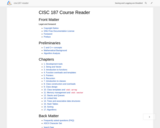
Any user should ensure they read the GNU Free Documentation license in its entirety.
- Subject:
- Applied Science
- Computer Science
- Material Type:
- Textbook
- Author:
- Dave Parillo
- Date Added:
- 12/13/2022


Any user should ensure they read the GNU Free Documentation license in its entirety.

A history of Cooperating Libraries in Consortium, 1969-2019
Word Count: 31409
(Note: This resource's metadata has been created automatically by reformatting and/or combining the information that the author initially provided as part of a bulk import process.)
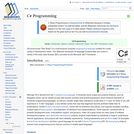
Although C# is derived from the C programming language, it introduces some unique and powerful features, such as delegates (which can be viewed as type-safe function pointers) and lambda expressions which introduce elements of functional programming languages, as well as a simpler single class inheritance model (than C++) and, for those of you with experience in "C-like" languages, a very familiar syntax that may help beginners become proficient faster than its predecessors. Similar to Java, it is object-oriented, comes with an extensive class library, and supports exception handling, multiple types of polymorphism, and separation of interfaces from implementations. Those features, combined with its powerful development tools, multi-platform support, and generics, make C# a good choice for many types of software development projects: rapid application development projects, projects implemented by individuals or large or small teams, Internet applications, and projects with strict reliability requirements. Testing frameworks such as NUnit make C# amenable to test-driven development and thus a good language for use with Extreme Programming (XP). Its strong typing helps to prevent many programming errors that are common in weakly typed languages.
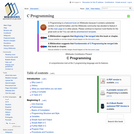
C is the most commonly used programming language for writing operating systems. The first operating system written in C is Unix. Later operating systems like GNU/Linux were all written in C. Not only is C the language of operating systems, it is the precursor and inspiration for almost all of the most popular high-level languages available today. In fact, Perl, PHP, Python and Ruby are all written in C. By way of analogy, let's say that you were going to be learning Spanish, Italian, French, or Portuguese. Do you think knowing Latin would be helpful? Just as Latin was the basis of all of those languages, knowing C will enable you to understand and appreciate an entire family of programming languages built upon the traditions of C. Knowledge of C enables freedom.
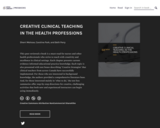
Short Description:
This peer reviewed e-book is a must-read for nurses and other health professionals who strive to teach with creativity and excellence in clinical settings. Each chapter presents current evidence informed educational practice knowledge. Each topic is also presented with text boxes describing ‘Creative Strategies’ that clinical teachers from across Canada have successfully implemented. For those who are interested in background knowledge, the authors provided a comprehensive literature base. And, for those interested mainly in 'what to do,' the text box summaries offer step-by-step directions for creative, challenging activities that both new and experienced instructors can begin using immediately.
Long Description:
About the Book
This peer reviewed e-book is a must-read for nurses and other health professionals who strive to teach with creativity and excellence in clinical settings. Each chapter presents current evidence informed educational practice knowledge. Each topic is also presented with text boxes describing ‘Creative Strategies’ that clinical teachers from across Canada have successfully implemented. For those who are interested in background knowledge, the authors provided a comprehensive literature base. And, for those interested mainly in ‘what to do,’ the text box summaries offer step-by-step directions for creative, challenging activities that both new and experienced instructors can begin using immediately.
The authors also address other issues familiar to clinical teachers. How do the theoretical foundations of teaching apply to clinical learning environments? How does one articulate a personal philosophy of teaching? How can clinical teachers support and socialize students towards becoming competent professionals? How can technology assist clinical instruction? What are the best methods of evaluating student progress in clinical ‘classrooms?’ What can preceptors do to promote student success? By considering these and other concerns, and by providing the kinds of practical strategies that can begin to resolve them, this open educational resource will be invaluable to clinical teachers from a variety of different disciplines and health care settings.
About the Authors
Sherri Melrose, Caroline Park, and Beth Perry teach in the Faculty of Health Disciplines at Athabasca University. Melrose has published widely on educating health professionals, facilitates a graduate course in clinical teaching and is a winner of the Canadian Association of Schools of Nursing Award for Excellence in Nursing Education. Park, currently the Chair of Graduate Programs, has taught in a variety of nurse education settings and leads research projects related to technology enhanced clinical education and mobile learning. Perry is an established author and is the principal investigator of a SSHRC-funded study exploring artistic pedagogical technologies. Perry is also a winner of the Canadian Association of Schools of Nursing Award for Excellence in Nursing Education.
Recommended Citation
Melrose, S., Park, C. & Perry, B. (2015). Creative clinical teaching in the health professions. Retrieved from http://epub-fhd.athabascau.ca/clinical-teaching/
Word Count: 55285
(Note: This resource's metadata has been created automatically by reformatting and/or combining the information that the author initially provided as part of a bulk import process.)
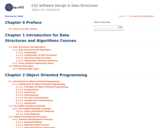
Chapter 1 Introduction for Data Structures and Algorithms Courses
Chapter 2 Object Oriented Programming
Chapter 3 List Interface & Array based Lists
Chapter 4 Algorithm Analysis
Chapter 5 Introduction to Pointers in Java
Chapter 6 Stacks
Chapter 7 Recursion
Chapter 8 Sorting
Chapter 9 Queues
Chapter 10 Linked Lists
Chapter 11 Binary Trees

Best practices and advice from the primary literature
Short Description:
In this book, I undertake a review of the literature on Course-based Undergraduate Research Experiences (CUREs) and present original data from a survey of instructors at the Ohio State University. The main goal of this publication is to be a practical guide for teachers wishing to develop and implements this type of High-Impact Practice in their course. As such, I cover many aspects of the development of a CURE, including advice on research development, group formation and management, evaluation and grading, inclusive teaching, and assignment design. A large number of activity templates and resources accompany the text to facilitate classroom implementation.
Word Count: 67955
(Note: This resource's metadata has been created automatically by reformatting and/or combining the information that the author initially provided as part of a bulk import process.)

Esse material didático é resultado das experiências do projeto de atuação na linha ambiente e sociedade do Programa de Pós-Graduação em Rede Nacional para o Ensino das Ciências Ambientais (PROFCIAMB), pela Universidade Federal do Amazonas (UFAM), tendo como base a dissertação “Abelhas nativas e educação ambiental: uma sequência didática interdisciplinar na formação do discente em agropecuária” que foi orientado pelo Prof. Dr. Neliton Marques da Silva.
Ele apresenta as sequências didáticas (SD’s) aplicadas junto a turma do 1º Ano do Curso Técnico de Nível Médio em Agropecuária na Forma Integrada, ofertados pelo IFAM campus Coari, com o objetivo de servir como um norteador para utilização das abelhas nativas sem ferrão como ferramenta educacional, especialmente na disciplina de ciências.

Esta comunidad tiene como fin construir un texto base, que pretende ser la puerta de entrada al mundo de las matemáticas superiores y sus aplicaciones en el campo de las Ciencias de la Ingeniería.
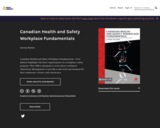
Short Description:
Canadian Health and Safety Workplace Fundamentals - First Edition highlights the basic requirements of a workplace safety program. This OER is designed to assist those working in Operations Management to provide a safe work environment for their employees, visitors, and contractors.
Word Count: 69121
Included H5P activities: 9
(Note: This resource's metadata has been created automatically by reformatting and/or combining the information that the author initially provided as part of a bulk import process.)
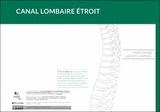
Ce chapitre couvre les situations où les racines lombaires (dites de la queue de cheval) sont mises à l’étroit dans le canal médullaire. Il s’agit de toutes les situations, en grande majorité dégénératives et chroniques, où il existe une compression extrinsèque du sac dural et des racines qu’il contient. Cette compression est dynamique ou statique, caractérisée par un effacement des espaces sous-arachnoïdiens et une disparition du liquide céphalo-rachidien (LCR) qui entoure et protège naturellement les racines. On parle alors de canal lombaire étroit (synonyme de sténose du canal médullaire lombaire, angl. : Lumbar Spinal Stenosis, LSS). Le canal lombaire étroit est parfois associé à un spondylolisthésis dégénératif qui fait l’objet d’un chapitre à part car la prise en charge est particulière. Les compressions liées à une pathologie tumorale extradurale (métastase, myélome, etc.), à un abcès péridural ou à des fractures sont couvertes dans d’autres chapitres. Les lésions liées à un processus tumoral intrathécal (dans le sac dural) ne sont pas couvertes. Le processus de dégénérescence de la colonne peut s’exprimer de façon relativement aiguë quand il est provoqué par une hernie discale ou un kyste arthrosynovial intracanalaire. Les sténoses congénitales ou constitutionnelles, et les rétrécissements causés par la lipomatose péridurale sont des variantes relativement rares, simplement évoquées dans ce chapitre.
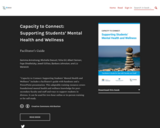
Facilitator’s Guide for Use with Faculty and Staff
Short Description:
"Capacity to Connect: Supporting Students’ Mental Health and Wellness" includes a facilitator’s guide with handouts and a PowerPoint presentation. This adaptable training resource covers foundational mental health and wellness knowledge for post-secondary faculty and staff and ways to support students in distress. It can be used for two-hour online or in-person training or for self-study.
Long Description:
Capacity to Connect: Supporting Students’ Mental Health and Wellness includes a facilitator’s guide with handouts and a PowerPoint presentation. This adaptable training resource covers foundational mental health and wellness knowledge for post-secondary faculty and staff and ways to support students in distress. It can be used for two-hour online or in-person training or for self-study. This resource incorporates a decolonized perspective and was guided by the following principles: accessible, adaptable, culturally located, evidence-informed, inclusive, and trauma-informed. Handouts include a wellness wheel self-assessment tool and information on supporting students in distress.
Word Count: 21886
(Note: This resource's metadata has been created automatically by reformatting and/or combining the information that the author initially provided as part of a bulk import process.)

Word Count: 20865
(Note: This resource's metadata has been created automatically by reformatting and/or combining the information that the author initially provided as part of a bulk import process.)

Cardiovascular Pathophysiology for Pre-Clinical Students is an undergraduate medical-level resource for foundational knowledge of common cardiovascular diseases, disorders and pathologies. This text is designed for a course pre-clinical undergraduate medical curriculum and it is aligned to USMLE(r) (United States Medical Licensing Examination) content guidelines. The text is meant to provide the essential information from these content areas in a concise format that would allow learner preparation to engage in an active classroom. Clinical correlates and additional application of content is intended to be provided in the classroom experience. The text assumes that the students will have an understanding of basic cardiovascular physiology that will be helpful to understand the content presented here. This resource should be assistive to the learner later in medical school and for exam preparation given the material is presented in a succinct manner, with a focus on high-yield concepts.
The 70-page text was created specifically for use by pre-clinical students at Virginia Tech Carilion School of Medicine and was based on faculty experience and peer review to guide development and hone important topics.
Available Formats
ISBN 978-1-957213-02-6 (PDF)
ISBN 978-1-957213-03-3 (ePub)
ISBN 978-1-957213-04-0 (print) https://www.amazon.com/Cardiovascular-Pathophysiology-Pre-Clinical-Students-Andrew/dp/1957213043
ISBN 978-1-957213-01-9 (Pressbooks)
https://pressbooks.lib.vt.edu/cardiovascularpathophysiology
Also available via LibreTexts: https://med.libretexts.org/@go/page/34347
How to Adopt this Book
Instructors reviewing, adopting, or adapting parts or the whole of the text are requested to register their interest at: https://bit.ly/interest-preclinical.
Instructors and subject matter experts interested in and sharing their original course materials relevant to pre-clinical education are requested to join the instructor portal at https://www.oercommons.org/groups/pre-clinical-resources/10133.
Features of this Book
1. Detailed learning objectives are provided at the beginning of each chapter;
2. High resolution, color contrasting figures illustrate concepts, relationships, and processes throughout;
3. Subsection summary tables
4. End of chapter lists provide additional sources of information; and
5. Accessibility features including structured heads and alternative-text provide access for readers accessing the work via a screen-reader.
Table of Contents
1. Arrhythmias
2. Heart Failure
3. Hypertension
4. Valvular Disease
5. Heart Sounds and Murmurs
6. Congenital Heart Disease
7. Ischemic Heart Disease
Suggested Citation
Binks, Andrew., (2022). Cardiovascular Pathophysiology for Pre-Clinical Students, Roanoke: Virginia Tech Carilion School of Medicine. https://doi.org/10.21061/cardiovascularpathophysiology. Licensed with CC BY NC-SA 4.0.
About the Author
Dr. Andrew Binks is a cardiopulmonary physiologist who gained his BSc (Hons) in Physiological Sciences at the University of Newcastle upon Tyne, then a MSc in Human and Applied Physiology from King’s College, London. He returned to Newcastle to do his PhD and study the underlying physiological mechanisms of dyspnea, the cardinal symptom of cardiopulmonary disease. He continued investigating dyspnea at Harvard School of Public Health as a postdoctoral fellow and then as a research scientist. After seven years at Harvard, Andrew took his first faculty position at the University of New England where he taught cardiovascular and pulmonary physiology to health profession and medical students. He continued to teach medical students their heart and lung physiology after moving to the University of South Carolina’s Medical School in Greenville where he also directed the school’s heart and lung pathophysiology courses. Andrew currently teaches heart and lung physiology and pathophysiology at Virginia Tech Carilion School of Medicine, directs the heart and lung pathophysiology course and has also served as the departmental director of faculty development.
In his two decades of teaching medical physiology, Andrew has regularly drawn upon his dyspnea research experience to generate an active, clinically focused approach to medical education. This book is part of that approach and supports students preparing for class with the basic information with the intention to apply and contextualize that information in a guided case-based classroom experience.
Andrew has published numerous peer-reviewed research papers and book chapters about dyspnea and about contemporary medical education. He has also given keynote presentations, faculty workshops and international webinars to promote effective medical education for the modern adult learner.
Accessibility Note
The University Libraries at Virginia Tech and Virginia Tech Publishing are committed to making its publications accessible in accordance with the Americans with Disabilities Act of 1990. The HTML (Pressbooks) and ePub versions of this book utilize header structures and include alternative text which allow for machine-readability.
Please report any errors at https://bit.ly/feedback-preclinical

Short Description:
CARDIOVASCULAR PATHOPHYSIOLOGY FOR PRE-CLINICAL STUDENTS, is an undergraduate medical-level resource for foundational knowledge of common cardiovascular diseases, disorders and pathologies. This text is designed for a course pre-clinical undergraduate medical curriculum and it is aligned to USMLE(r) (United States Medical Licensing Examination) content guidelines. The text is meant to provide the essential information from these content areas in a concise format that would allow learner preparation to engage in an active classroom. Clinical correlates and additional application of content is intended to be provided in the classroom experience. The text assumes that the students will have an understanding of basic cardiovascular physiology that will be helpful to understand the content presented here. This resource should be assistive to the learner later in medical school and for exam preparation given the material is presented in a succinct manner, with a focus on high-yield concepts.NewParaAdditional versions of this book are freely available at: https://doi.org/10.21061/cardiovascularpathophysiology and https://med.libretexts.org/@go/page/34347.NewParaInstructors reviewing, adopting, or adapting parts or the whole of the text are requested to register their interest at: https://bit.ly/interest-preclinical. Instructors and subject matter experts interested in sharing original supplemental materials are invited to join https://www.oercommons.org/groups/pre-clinical-resources/10133.
Word Count: 18050
ISBN: 978-1-957213-01-9
(Note: This resource's metadata has been created automatically by reformatting and/or combining the information that the author initially provided as part of a bulk import process.)

Career Cornerstones: Establishing a Foundation for a Career in Healthcare is an Open Educational Resource (OER) that focuses on career skills required for students entering their respective health profession's program. This book is designed to help students be successful not only in their health profession's educational program, but also as they start to intern or work in healthcare settings. This resource is targeted for Healthcare Administration, Health Sciences, and Pre-Professional students.

Word Count: 35543
(Note: This resource's metadata has been created automatically by reformatting and/or combining the information that the author initially provided as part of a bulk import process.)

Word Count: 113542
(Note: This resource's metadata has been created automatically by reformatting and/or combining the information that the author initially provided as part of a bulk import process.)
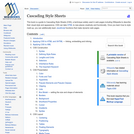
This book is a guide to Cascading Style Sheets (CSS), a technique widely used in web pages including Wikipedia to describe their visual style and appearance. CSS can take HTML to new places creatively and functionally. Once you learn how to style mark-up, you can additionally learn JavaScript functions that make dynamic web pages.
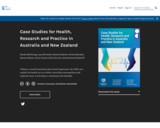
Taking a transformational, place-based approach, the OER case studies for health are set within Australian metropolitan and regional areas so learning is contextual and relatable.